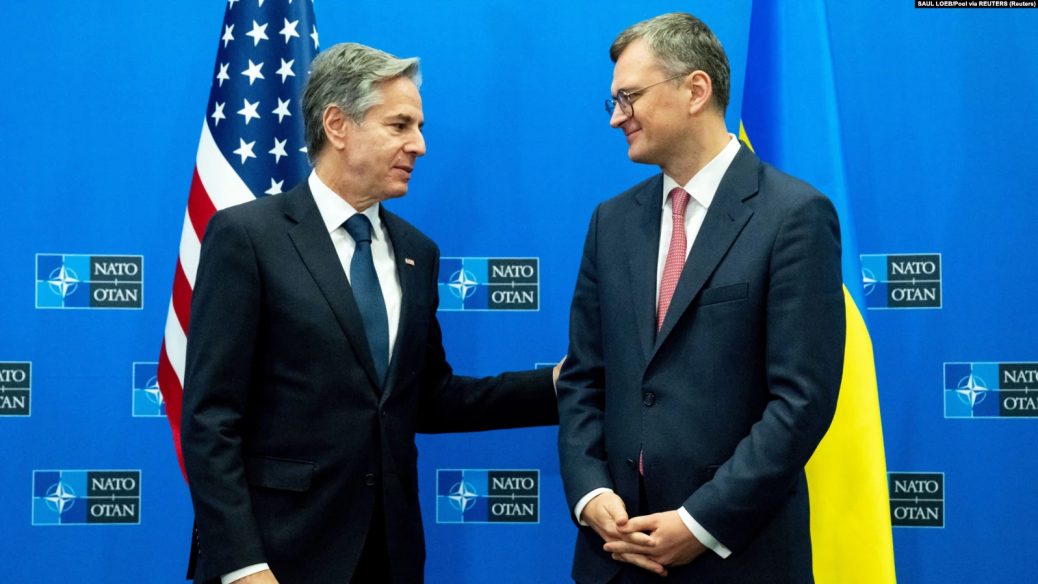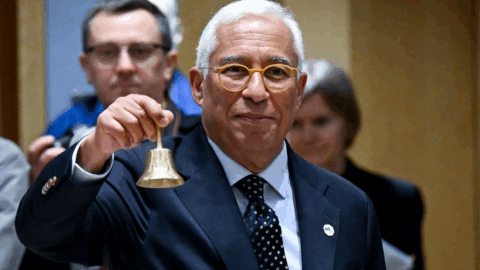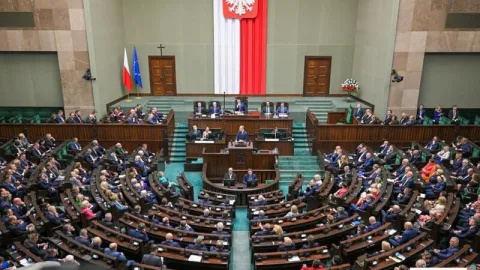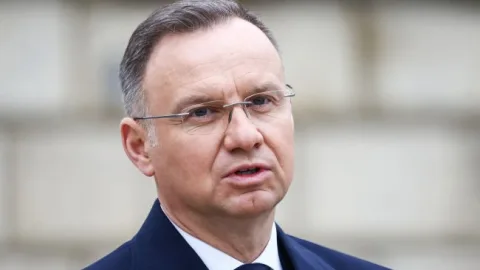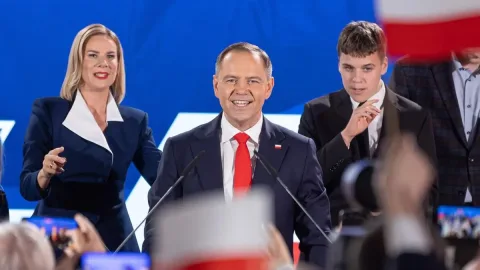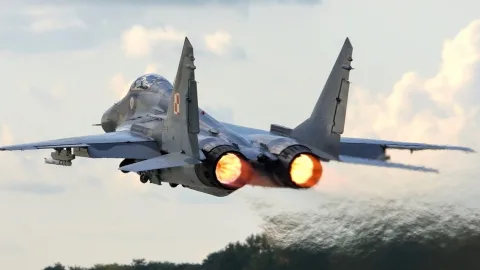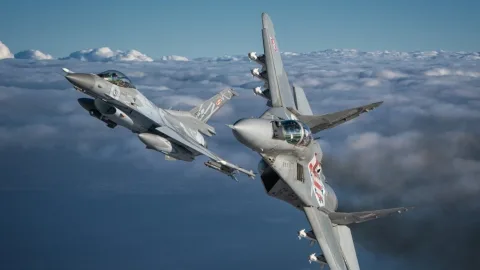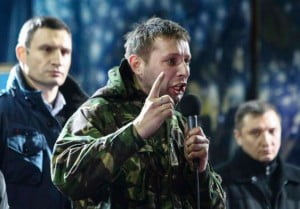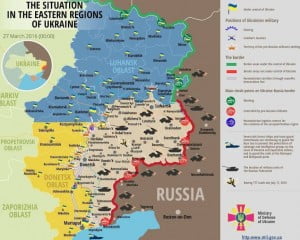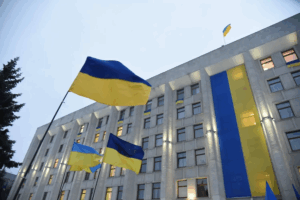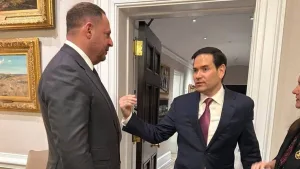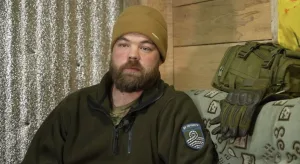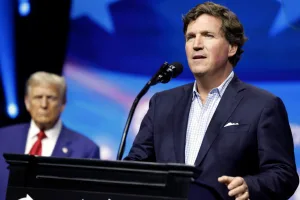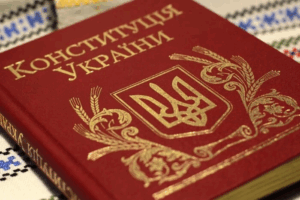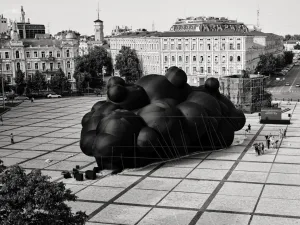On September 5, Parliament dismissed Dmytro Kuleba from his position as Minister of Foreign Affairs of Ukraine, a role he had held since March 4, 2020. Kuleba’s resignation was supported by 240 deputies. According to Member of Parliament Yaroslav Zheleznyak, the head of the foreign ministry did not come to the Verkhovna Rada before the vote.
According to David Arahamiya, head of the ‘Servant of the People’ faction, Andriy Sybiga will replace Kuleba as the head of the ministry.
How has the dismissal of Dmytro Kuleba been received in global diplomatic circles, given that he led Ukraine’s Ministry of Foreign Affairs throughout all 925 days of Russia’s full-scale war against Ukraine
Reactions have been gathered by Voice of America.
U.S. Secretary of State Antony Blinken and Ukrainian Foreign Minister Dmytro Kuleba discussed the potential resignation during a phone call on Wednesday, September 4.
According to a U.S. State Department spokesperson, during the call, ‘the Secretary expressed great gratitude and friendship to Foreign Minister Kuleba, and of course, he looks forward to working with his successor.’
State Department spokesperson Matthew Miller referred to the Ukrainian Foreign Minister as ‘our main partner in traveling the world.’
In a sense, Foreign Minister Kuleba was our main partner in traveling the world, seeking diplomatic support both for supporting Ukraine and holding Russia accountable,” he said.
According to Miller, Blinken mentioned during the conversation ‘how much he enjoyed working with him over the past few years.’
‘Foreign Minister Kuleba was an extraordinary partner for the U.S. in our work to support Ukraine in countering Russia’s aggression, as well as in the efforts we made to bolster diplomatic support,’ Miller said.

The U.S. State Department spokesperson also shared that Blinken and Kuleba often began their meetings by discussing how ‘one of them might say something like, I know that a certain country has a missile defense system, and they might make it available if another country replenishes their stocks with something else.’
According to Miller, they always tried to address ‘very specific issues that Ukraine faces.’
The United States is not involved in decisions made by the Ukrainian government regarding changes in its administration, White House National Security Spokesperson John Kirby stated during a briefing on September 4.
In response to questions about recent personnel changes in Ukraine’s Cabinet of Ministers, Kirby said that Washington does not offer ‘any advice.’
‘The decision remains with President Zelensky regarding who supports him in his government. This will not change how we interact with Ukraine, and it certainly will not change the support we will continue to provide,’ added the White House representative.
German Foreign Minister Annalena Baerbock also shared positive remarks about Kuleba.
The diplomat said she was saddened by the potential resignation of Ukraine’s Foreign Minister and added that she had worked more closely with Kuleba than with many others.
‘Long conversations on night trains, at the G7, at the front line, in Brussels, in front of a bombed power station. I have worked more closely with you, Dmytro Kuleba, than with many others. You put the interests of your country’s people above your own,’ wrote the German Foreign Minister.
She later added, ‘We will meet again when peace and freedom finally return to Ukraine.’

Gabrielius Landsbergis, the Lithuanian Foreign Minister, wrote on X that it was an honor to defend Ukraine and Europe with Kuleba.
‘My dear friend Dmytro Kuleba has set a very high standard not only for his successor but for any foreign minister of any country. It has been an honor to defend Ukraine and Europe alongside him,’ the Lithuanian Foreign Minister wrote.
Estonian Foreign Minister Margus Tsahkna called Dmytro Kuleba ‘a brother in countering Russian aggression.’
‘Your more than 1500 days in office were spent defending Ukraine, us, and our values,’ the Estonian Foreign Minister wrote.
He also added: ‘Dear Dmytro Kuleba, we were not only colleagues but also friends and brothers in countering Russian aggression against Ukraine and the democratic world.’

‘The best of Ukrainian dignity and resilience,’ is how Spanish Foreign Minister José Manuel Albares described Minister Kuleba.
‘We worked closely on defending Ukraine’s freedom and sovereignty and opening negotiations for EU accession during Spain’s presidency,’ the Spanish diplomat recalls.
On September 3, Foreign Minister Dmytro Kuleba submitted his resignation to the Verkhovna Rada. On September 4, when the Ukrainian Parliament voted on a series of dismissals within the Ukrainian government, Kuleba’s resignation was not yet addressed.
Officials and advisors to President Zelensky told Politico that Kuleba, although well-known worldwide and frequently appearing on television, ‘has done little over the past year to improve relations between Kyiv and Washington or to achieve battlefield objectives. Instead, they say, he has been promoting his new book.’
Yermak and Kuleba did not respond to Politico’s request for comment.

- Dmytro Kuleba is a professional diplomat.
- He was born in Sumy in 1981. He graduated with honors from the Institute of International Relations at Taras Shevchenko National University of Kyiv with a degree in international law. He holds a PhD in Law (2005).
- From 2003 to 2010, he worked within the Ministry of Foreign Affairs of Ukraine in various positions at the central apparatus and at the Permanent Representation of Ukraine to international organizations in Vienna (dealing with OSCE matters).
- From 2010 to 2013, while working in the Secretariat of the Minister of Foreign Affairs of Ukraine, he focused on Ukraine’s image abroad, international organizations, and relations with the USA.
- From January to June 2013, he served as an advisor to the Vice Prime Minister of Ukraine on humanitarian issues.

- In 2013, he also led the UART Cultural Diplomacy Foundation.
- In 2014, he returned to the Ministry of Foreign Affairs to serve as Ambassador-at-Large for Strategic Communications. He introduced the concepts of digital diplomacy, strategic communications, cultural diplomacy, and public diplomacy into the Ministry’s work.
- In 2016, he was appointed as Ambassador and Permanent Representative of Ukraine to the Council of Europe.
- From August 2019 to March 2020, he served as Vice Prime Minister for European and Euro-Atlantic Integration of Ukraine.
- Since March 4, 2020, he has been the head of the Ministry of Foreign Affairs of Ukraine.
- He is the author of the book ‘The War for Reality: How to Win in a World of Fake News, Truths, and Communities.’

